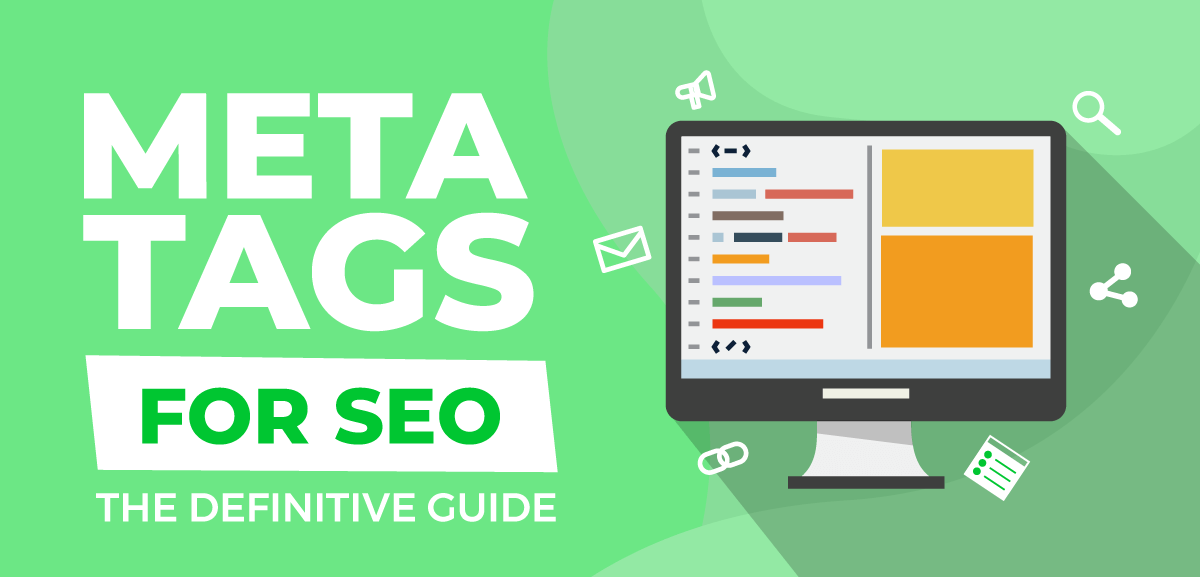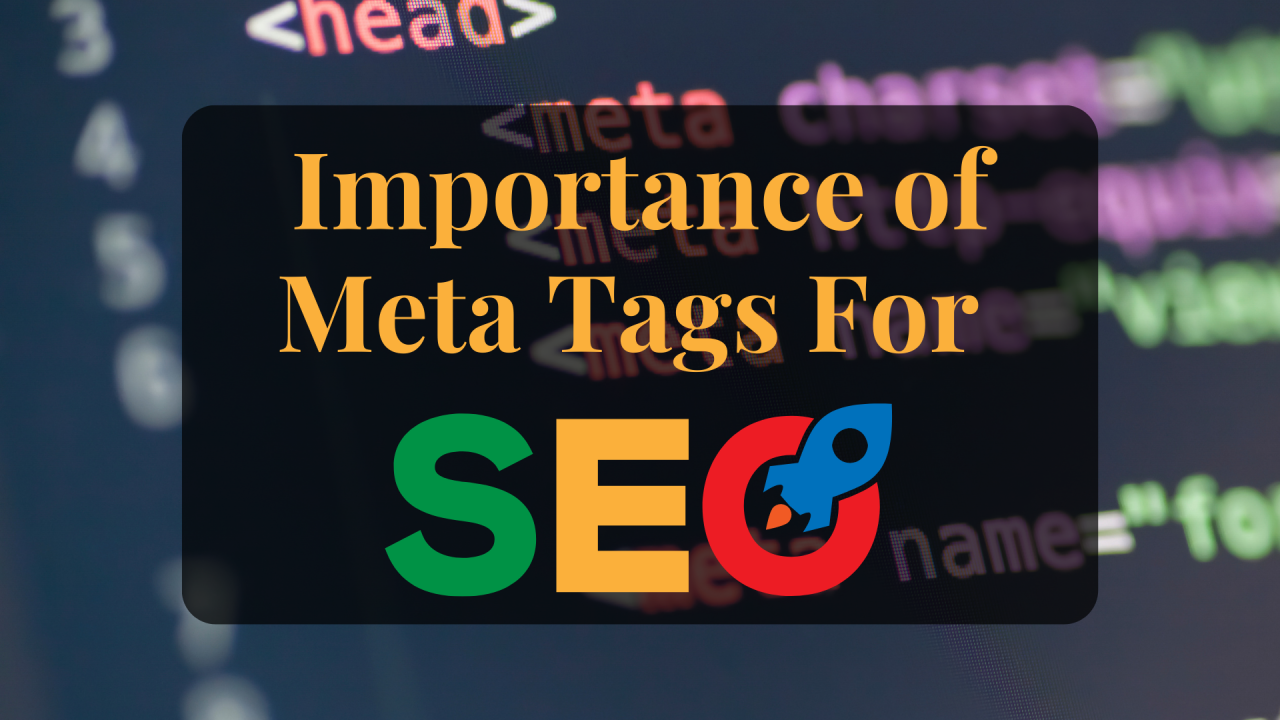What are Meta Tags in SEO?

Discover the power of meta tags in SEO and unlock the full potential of your website. In this blog, we delve into the fundamental principles of search engine optimization and explore how meta tags play a crucial role in improving your website’s visibility and search rankings. From title tags to image tags, from description tags to robot no-follow and no-index tags, we’ll guide you through the key types of meta tags and their impact on your website’s performance. Are you ready to enhance your SEO strategy and boost your online presence with effective meta tags? If yes, read till the end.
What are Meta Tags?
Meta tags are pieces of text that represent a page’s content. They don’t appear on the page itself, but only in the page’s authorization code. They are really little content descriptors that improve tell search engines what a web page is concerning.
However, the only disagreement between tags you can view and tags you can’t view is the location. Furthermore, meta tags are visible only to search engines and reside in HTML at the page’s head.. Metadata refers to the description of data provided by tags on a page.
What is the Importance of Meta Tags in SEO?
By giving visitors and search engines valuable information about a webpage, meta tags are essential to search engine optimization (SEO). The significance of meta tags in SEO is explained in the following points:
Improved Search Engine Visibility
Meta elements like the title tag and meta description have a direct impact on how a webpage appears in search engine results. Moreover, optimizing tags with keywords and descriptions improves website exposure, search engine comprehension, and content understanding.
Click-Through Rates (CTR)
Effective meta tags can have a big influence on how many people click through search engine results. The page’s content is summarized in the meta description, while the title tag acts as the page’s clickable headline. Moreover, developing intriguing and educational tags to increase clicks from visitors who find your material relevant to their search queries.
User Engagement
By clearly defining the expectations a user has for the content of a webpage, meta tags in SEO help to improve the user experience. Users are more likely to click through and stay on the website when they encounter accurate and interesting meta tags in search results, which raises engagement metrics like time on site, page visits, and bounce rates. This user interaction conveys value to search engines and may improve search results.
Keyword Optimization
You can put relevant keywords relating to the content of the webpage in meta tags. Your page will be more relevant in search results if you use targeted keywords in the title tag and meta description to align it with particular search queries. It makes it more likely that your page will rank for pertinent keywords by assisting search engines in understanding the goal and subject of your page.
Social Media Sharing
When sharing web pages on social networking networks, meta tags are also quite important. Meta tags frequently include the title, description, and thumbnail picture when a website is shared. By making these tags as effective as possible, you can manage how your material appears on social media, boosting its visibility and encouraging readers to visit your website.
Structured Data and Rich Snippets
Structured data can be included using certain meta tags, such as schema markup. Search engines can interpret the text more thoroughly and meaningfully because of this additional information. Structured data enhances the visual appeal of search results by incorporating additional contexts such as star ratings, reviews, and product details, thereby creating rich snippets. Rich snippets can increase click-through rates and draw more attention.
Types of Meta Tags
In a web page, a lot of various HTML tags can be used. We’re simply going to concentrate on a few highly used meta tags in SEO.
![]()
Title Tag
The title tag instructs search engines to show the specified title on SERPs. It can be an abbreviated version of the website’s headline. The title tag also determines the title that will appear on the page when it is shared on social media and in browser tabs. It is simpler for search engine crawlers to read, categorize, and rank your content if your web pages have title tags.
Image Tags
Image tags, also known as alt tags or alt attributes, are HTML attributes that provide textual descriptions for images on a webpage. These meta tags in SEO are necessary for accessibility. In addition, image tags offer alternative text for visually impaired individuals and enhance search engine indexing and positioning.
Description Tags
Description tags, also known as meta descriptions, are HTML elements that provide concise summaries of a webpage’s content. Search engine results display a page’s content overview below the title tag, providing readers with a quick overview. By affecting click-through rates and user engagement, description tags are essential to SEO. Website owners can write interesting and relevant descriptions to boost organic traffic and search results visibility.
Keyword Tags
Keyword tags also referred to as meta keywords, indicate the primary keywords or phrases associated with a webpage’s content. In the past, they played a significant role in SEO. However, search engines now prioritize other factors for ranking. While keyword tags are no longer a ranking factor but are still useful for internal reference and organization by website owners and content creators.
Robot No-follow and No-index Tags
No-index and Robot No-follow tags are crucial for website SEO. No-follow tags tell search engines not to follow a particular link, stopping it from affecting search results. On the other side, No-index tags prevent search engines from indexing specific web pages, preventing their inclusion in search results. These tags optimize search engine visibility and traffic flow by indexing and following relevant pages for optimal results.
Conclusion
In conclusion, meta tags play a crucial role in search engine optimization (SEO) strategies. They are HTML tags that provide information about a webpage to search engines and website visitors. By strategically optimizing meta tags, businesses can enhance their online visibility, improve click-through rates, and attract targeted traffic to their websites. Don’t overlook the power of well-optimized meta tags in your SEO efforts. Contact Digital Notebook, a leading SEO Company in Noida today to enhance your website’s visibility and attract the right audience to your online presence.





